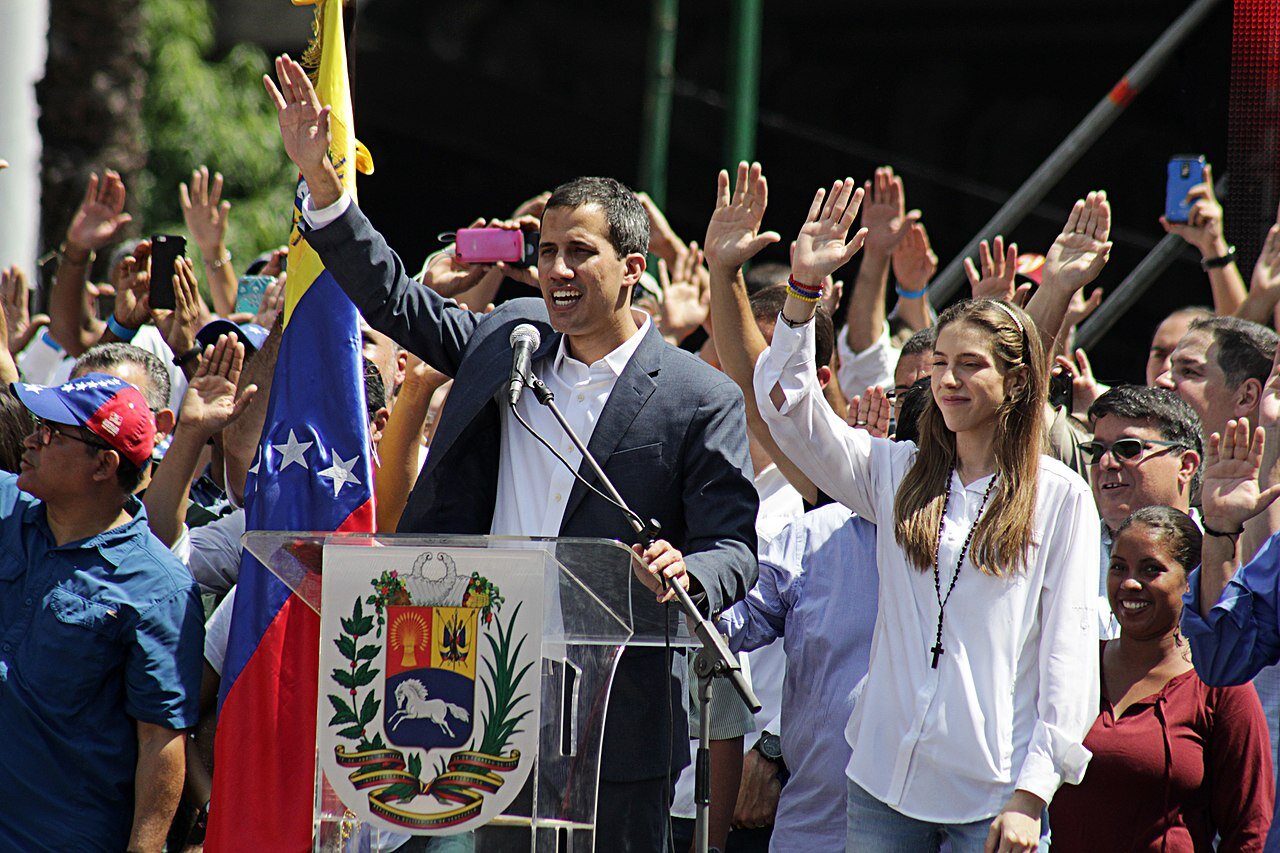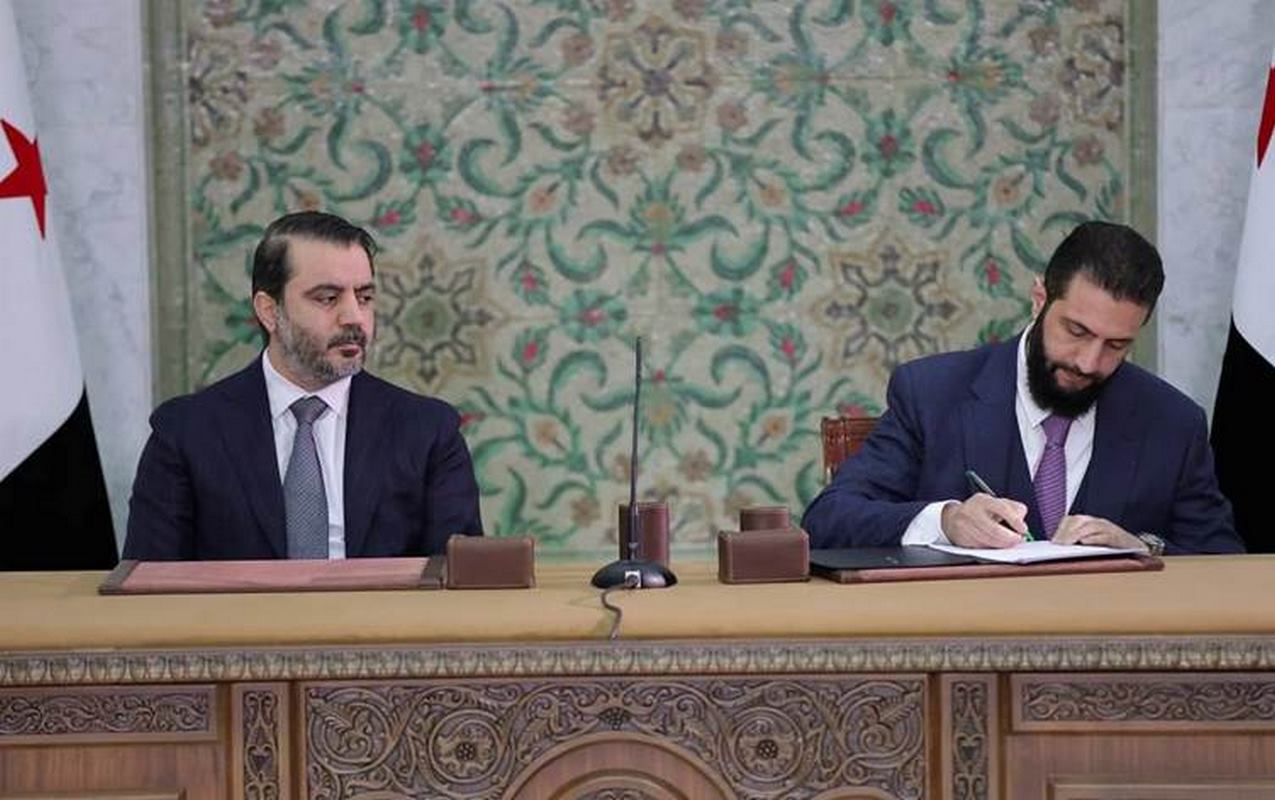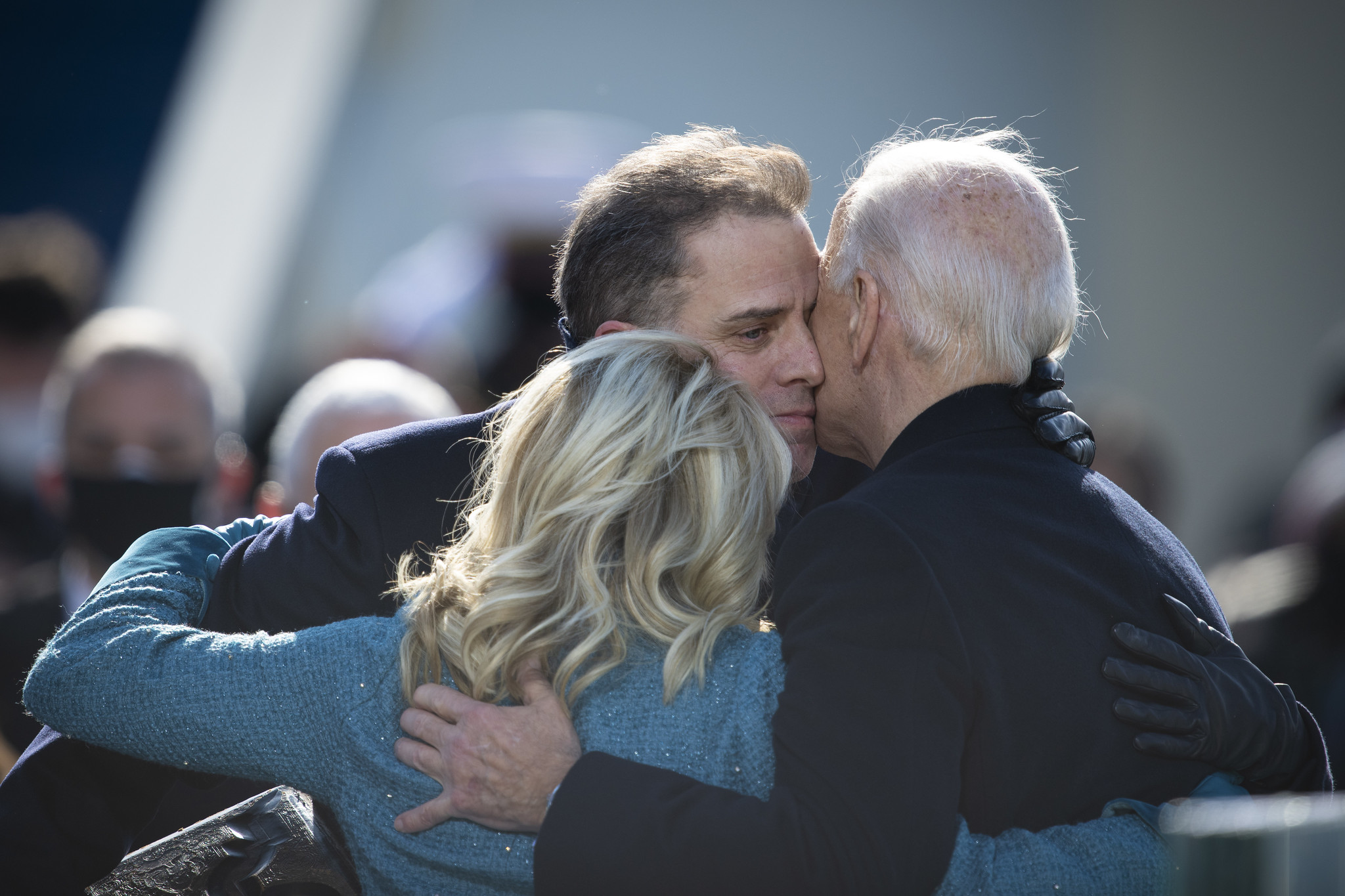CARACAS February 2nd, 2019. PICTURED: Juan Guaido at an anti-Maduro protest in the Venezuelan Capital. Photo credit Alex Cocopro via Wikimedia. CC 4.0 Int
CARACAS, Venezuela. January 10th, 2020. After being re-elected as head of the Venezuelan National Assembly in a newspaper office on January 5th, a forced entry into the parliament building 3 days later during the first session of the new legitimate National Assembly leader Luis Parra allowed Juan Guaido to claim some semblance of legitimacy after being sworn in as “Interim President” for another year.
During the January 5th “parallel” election, Guaido claimed 100 votes in his favor, many of which coming from substitutes for the deputies who voted for Parra, as well as others who had been forced to flee the country. Despite these massive irregularities, U.S. Sec. of State Mike Pompeo wasted no time in congratulating him on his re-election.
After a video circulated on social media of Guaido attempting to scale a fence after it was alleged he and his supporters were barred from entering the legislative chamber before the vote was to take place, cries of foul play and illegitimacy were hurled at the following vote which saw 81 of 150 deputies choose Parra over Guaido.
However Lucas Koerner writing for FAIR reminds us that pro-Guaido politicians were permitted to enter, and the session proceeded with nearly the entire legislative compliment. Those few deputies who, along with Guiado, himself choosing not to enter as opposed to being prevented, were barred from entry by security forces as a result of their parliamentary immunities being revoked due to ongoing criminal charges and investigations, as per the Venezuelan constitution.
Forcing their way past the police cordon on January 8th, Guaido and his supporters entered the building during the first parliamentary session of the new year, and following the flight of a certain amount of the legislature, began his own session in which he was sworn-in to the head of the body for another year.
The stunt had decorum and decisive action in abundance, with members joining those who stormed in singing the national anthem as the power was cut off to the building. But it also lacked quorum, with apparently only 84 deputies – not enough to legally pass any motion, present at the time of the vote.
Crime and punishment
Taken from an earlier World at Large article from January.
The Constitution of the Bolivarian Republic of Venezuela states that while a parliamentarian enjoys immunity during his term in the National Assembly, any cases of crimes committed by an MP will be shared with the Supreme Court and kept in confidence until the conclusion of his or her term in office.
Should a parliamentarian commit “flagrant crime” the constitution states that he or she should be detained and held in their place of residence while the case is reviewed by the Supreme Court.
With that in mind, there may be several cases held in trust, which may have had an effect upon Guaido’s ability to enter the legislative chamber.
These might have included the theft of hundreds of thousands of dollars in USAID money that was destined to help Venezuelan refugees seeking asylum in Colombia. The money was spent on lavish hotels and resorts, expensive jewelry and watches, and trips to exclusive nightclubs in Bogota.
Another chance to throw the book at Guiado could come from a September leak which showed him posing with members of hard-right Colombian paramilitary leaders from Las Rastrojos, who have reportedly been involved in trafficking, illegal mining, kidnapping, targeted killings, and extortion.
Perhaps the most damning on all came in September when Guaido was charged with high treason after audio recordings of him negotiating with ExxonMobil over oil access in a disputed border region between Venezuela and Guyana were leaked to the Venezuelan press.
If investigators have found clear evidence that Guaido is guilty of any of these crimes, the constitution states that his cases should be withheld until his term in office is over, or he should be apprehended and placed under house arrest – an incredibly risky move considering the widespread support for Guaido’s claim to the presidency among U.S. lawmakers and European nations.
However knowledge that such crimes may have been committed could be used as legal justification for preventing him from casting a vote.
Meanwhile, as Guaido’s support among the public shrinks – now down to 40% or less – with every passing month and every passing scandal, his flame seems to be closer to extinguishment than ever before.



